With no footie tournament to boost sales this year, how are take-home sales going to fare? Better than ever say the brewers. Kate Miller reports
We went, we saw, we lost and another World Cup year was over. Luckily, long after the World Cup displays and the bunting was put away, the sun remained in the sky, making 2006 a great year for take-home alcohol.
Steve Kitching, InBev UK managing director, commercial and field operations, says: "In terms of beer sales, the World Cup was overshadowed by the impact of the weather last year. We were unusually lucky in that most of the hot days fell at the weekend. Independent audit figures for the four weeks to mid-June showed that total take-home sales surged by 23%, with lager growing by almost 25%. Just about every weekend was perfect for barbecues and other social gatherings, giving the category a major boost over a much longer period than the World Cup alone."
"It's always about the sun," says Tom Feinson, customer marketing director - Carling at Coors Brewers. "Historically, it would suggest that when we have a big football tournament it brings the sales forward, but you have a drop-off when it's over. When there isn't one you have a smoother sales period. Last year we had a big football tournament and a great summer so there was a double hit. But if you had to choose between a football tournament or sun, you'd always choose the sun."
He also points out that sales aren't necessarily about temperature, but more about sustained sunshine:
"If you have a nice day on a Tuesday consumers tend to think about having a barbecue at the weekend."
Kitching points to 2003 as an indication that weather is far more important than sport in terms of summer take-home sales. "The long summer of 2003 is a good example of how the weather sent demand for beer soaring. There were no tournaments or large sporting events, but one independent retail group saw multipack sales shoot up by 114%. An extra £9.5m-worth of sales were generated over just seven weeks, which goes to show that hot weather is enough on its own to drive sales without having to depend on discounting."
This year InBev is promoting sponsorship activity for Brahma, the official beer of National BBQ Week, and is supporting the Artois family of beers with summer advertising.
Peeterman Artois will be launched to independent outlets during the summer following a successful on-trade and multiple stores rollout and will benefit from a 10-week outdoor poster that will focus on its 4% abv. Further advertising support is planned later in the year.
This summer will also see the roll out of Beck's Green Lemon, a 2.5% abv lemon lager drink, following a national trial in 2006. The beer will be available in 6x330ml bottle packs, rrp £4.99.
Craig Clarkson, S&N UK head of customer marketing (off-trade), says that this year S&N aims to build on Foster's association with informal alfresco eating and snacking occasions like barbecues through the launch of the nationwide 'Tuck in with Foster's' campaign. Says Clarkson: "We will be working closely with retailers to produce creative display and promotion opportunities that link Foster's with barbecue foods. Retailers will see the benefit at the till through increased impulse purchases if they make it easy for shoppers to pick up everything they need for the ultimate laid-back barbie."
The brand has teamed up with Birds Eye to give retailers the opportunity to offer linked deals on Foster's and Birds Eye burgers. "Siting Foster's in the frozen food aisle will maximise the barbecue sales opportunity," says Clarkson.
For some sectors, a summer without a football tournament is a bonus. Hall and Woodhouse brands marketing manager Rick Payne believes his sector is one of them. "Ale might benefit as last year, with the World Cup, it was all about lager. Ale might get a bit of its share back."
Brothers marketing manager Matthew Langley agrees: "I always think the World Cup is often overrated as a sales tool. It's really only four weeks of the summer.
"We're historically a music-led brand and with our involvement with Glastonbury this year we're expecting a big uplift around that. We'll be very, very visible."
Diageo's Pimm's brand is hoping that the lack of tournament will also work in its favour. Last summer was its most successful yet and the brand grew by 12% in volume (AC Nielsen MAT to March 2007). According to Pimm's brand manager Matt Campbell, the brand sees faster growth rates in years without big football tournaments. "Wimbledon benefits us and we get an uplift around the cricket, but most of our consumers are in their back gardens in the summer, and it is very weather dependent."
He puts the recent success of Pimm's down to the fact that the brand has been opened up to a wider demographic. "The demographic history of the brand has been that geographically it has been based in the South, with older, more affluent consumers. The 'Anyone for Pimm's' strategy opened up the brand and now it's much more related to the wine consumer, with 100,000 new households coming into the brand."
Activity for Pimm's this summer includes a £3.5m investment, kicking off with terrestrial TV advertising outside the brand's traditional Southern heartland for the first time from May 24.
The advertising will use the Harry character, back for his fifth year, but this time he'll be let loose among the British public in a mix of mockumentary and real-life filming. The resulting footage will be used for ads and also streamed on MySpace. Two Pimm's buses will also be visiting festivals and a bespoke campaign for convenience will involve a Pimm's bike roaming the high streets and parks surrounding c-stores in a sampling campaign.
One of the major success stories from last year was cider. And the category is about to prove itself more than a one-hit wonder, according to Gaymers managing director John Mills. "Summer is always good for cider and the market has been phenomenal. Everyone talks about the Magners effect, but small companies are doing really well, too."
Brothers' Langley agrees: "Magners got consumers to reassess what cider is about. Now they are looking for new things. Our flat ciders are really taking off. Brand owners are investing and to me everything is pointing to more growth."
Magners marketing director Maurice Breen adds: "Before we came in no one believed there would be investment in the category." He promises that this year should see an end to the distribution problems experienced last year. The company has invested e200m and doubled the production at its headquarters in Ireland.
"There will be no issue with stock supply this year," Breen states.
But Mills says that the category needs more investment: "There's still tons more to do," he says. This year Gaymers announced its biggest single investment of its £26m investment programme focusing on Gaymers Original. A £4m consumer advertising campaign will begin next month using the 'As good as it gets' theme. The brand has also undergone a packaging upgrade and the launch of a 500ml can four-pack.
Mills says that he gets frustrated with the attitude of some cash and carries which seem to focus only on what he calls 'rocket fuel' brands of white cider. "They need to embrace the category's growth," he argues.
Gaymers has recently reduced its Old English brand from 5.3% abv to 4.5%, a 15% reduction in alcohol.
Merrydown managing director Chris Carr agrees: "You walk down the cash and carry aisles and there is a whole wall of white cider. What does that say about the cider industry?
"With some small retailers there's the issue of allocating too much space to white cider. Look at supermarkets and they give less than 10%, to white cider, but in independents it's 30%."
He points out that consumers are unlikely to choose white ciders to take to a barbecue and he would like to see smaller retailers doing multibuy deals across cider, beer and lager with the same price points.
But whether it's cider, beer or ale, the message is chill, chill, chill.
Anheuser-Busch UK marketing director Vicki Kipling says: "Within convenience stores the demand for chilled drinks will continue to grow - with consumers expecting to mirror their experience of chilled drinks in the on trade. The availability of chiller cabinets and ability to offer a range of drinks within these are crucial."
Coors' Feinson agrees: "Cold beer will be absolutely at the forefront of major brewers' plans, particularly in convenience. Selling cold beer is what c-stores do better than supermarkets."
Carling has introduced thermo chromic ink on cans and bottles to encourage retailers to stock Carling in the fridge. "Our consumers say that cold is the single most important element in terms of quality and would pay more for it," says Feinson.
The chilled message even extends to the ales category, according to Payne. "Most brewers recommend ale is served slightly chilled. By the time consumers get it home from the c-store it'll be the perfect temperature."
He says that while he is aware c-stores have limited space, retailers need to understand that ale consumers often like to experiment: "You need to allocate space to local and regional products. Lots of c-stores stock just two or three ales, which isn't enough. Somewhere about 10 would be better and give
a good mix."
Hall and Woodhouse is currently building a category management programme for speciality beer and there are also plans to run conferences in the summer for retailers. "We believe we can double the size of the category predominantly through doubling customer penetration."
S&N brands Foster's and Foster's Twist will feature in the next phase of 'The Biggest Round' sampling initiative until September.
Carlsberg and Carlsberg Export's summer activity gives drinkers the chance to win the use of a private island for a week. The winner and three friends get to stay on the island in French Polynesia and live the life of luxury for seven days. The prize includes all food and drink plus excursions including deep-sea diving. Runners-up receive cases of Carlsberg Edge.
Carlsberg has also signed a four-year deal with Glastonbury Festival to be the event's official beer until 2011.
This year AB has launched its biggest ever UK promotion for Budweiser, called Bud Bucks. A national TV advertising campaign is also running this month along with a new print campaign 'Chilled', appearing in men's lifestyle magazines. The company also recently signed the rights to distribute Estrella Damm Barcelona throughout the UK.
Heineken UK is currently running a promotion where consumers are given a limited-edition pint glass for every two multipacks of the beer that they purchase.
We went, we saw, we lost and another World Cup year was over. Luckily, long after the World Cup displays and the bunting was put away, the sun remained in the sky, making 2006 a great year for take-home alcohol.
Steve Kitching, InBev UK managing director, commercial and field operations, says: "In terms of beer sales, the World Cup was overshadowed by the impact of the weather last year. We were unusually lucky in that most of the hot days fell at the weekend. Independent audit figures for the four weeks to mid-June showed that total take-home sales surged by 23%, with lager growing by almost 25%. Just about every weekend was perfect for barbecues and other social gatherings, giving the category a major boost over a much longer period than the World Cup alone."
"It's always about the sun," says Tom Feinson, customer marketing director - Carling at Coors Brewers. "Historically, it would suggest that when we have a big football tournament it brings the sales forward, but you have a drop-off when it's over. When there isn't one you have a smoother sales period. Last year we had a big football tournament and a great summer so there was a double hit. But if you had to choose between a football tournament or sun, you'd always choose the sun."
He also points out that sales aren't necessarily about temperature, but more about sustained sunshine:
"If you have a nice day on a Tuesday consumers tend to think about having a barbecue at the weekend."
Kitching points to 2003 as an indication that weather is far more important than sport in terms of summer take-home sales. "The long summer of 2003 is a good example of how the weather sent demand for beer soaring. There were no tournaments or large sporting events, but one independent retail group saw multipack sales shoot up by 114%. An extra £9.5m-worth of sales were generated over just seven weeks, which goes to show that hot weather is enough on its own to drive sales without having to depend on discounting."
This year InBev is promoting sponsorship activity for Brahma, the official beer of National BBQ Week, and is supporting the Artois family of beers with summer advertising.
Peeterman Artois will be launched to independent outlets during the summer following a successful on-trade and multiple stores rollout and will benefit from a 10-week outdoor poster that will focus on its 4% abv. Further advertising support is planned later in the year.
This summer will also see the roll out of Beck's Green Lemon, a 2.5% abv lemon lager drink, following a national trial in 2006. The beer will be available in 6x330ml bottle packs, rrp £4.99.
Craig Clarkson, S&N UK head of customer marketing (off-trade), says that this year S&N aims to build on Foster's association with informal alfresco eating and snacking occasions like barbecues through the launch of the nationwide 'Tuck in with Foster's' campaign. Says Clarkson: "We will be working closely with retailers to produce creative display and promotion opportunities that link Foster's with barbecue foods. Retailers will see the benefit at the till through increased impulse purchases if they make it easy for shoppers to pick up everything they need for the ultimate laid-back barbie."
The brand has teamed up with Birds Eye to give retailers the opportunity to offer linked deals on Foster's and Birds Eye burgers. "Siting Foster's in the frozen food aisle will maximise the barbecue sales opportunity," says Clarkson.
For some sectors, a summer without a football tournament is a bonus. Hall and Woodhouse brands marketing manager Rick Payne believes his sector is one of them. "Ale might benefit as last year, with the World Cup, it was all about lager. Ale might get a bit of its share back."
Brothers marketing manager Matthew Langley agrees: "I always think the World Cup is often overrated as a sales tool. It's really only four weeks of the summer.
"We're historically a music-led brand and with our involvement with Glastonbury this year we're expecting a big uplift around that. We'll be very, very visible."
Diageo's Pimm's brand is hoping that the lack of tournament will also work in its favour. Last summer was its most successful yet and the brand grew by 12% in volume (AC Nielsen MAT to March 2007). According to Pimm's brand manager Matt Campbell, the brand sees faster growth rates in years without big football tournaments. "Wimbledon benefits us and we get an uplift around the cricket, but most of our consumers are in their back gardens in the summer, and it is very weather dependent."
He puts the recent success of Pimm's down to the fact that the brand has been opened up to a wider demographic. "The demographic history of the brand has been that geographically it has been based in the South, with older, more affluent consumers. The 'Anyone for Pimm's' strategy opened up the brand and now it's much more related to the wine consumer, with 100,000 new households coming into the brand."
Activity for Pimm's this summer includes a £3.5m investment, kicking off with terrestrial TV advertising outside the brand's traditional Southern heartland for the first time from May 24.
The advertising will use the Harry character, back for his fifth year, but this time he'll be let loose among the British public in a mix of mockumentary and real-life filming. The resulting footage will be used for ads and also streamed on MySpace. Two Pimm's buses will also be visiting festivals and a bespoke campaign for convenience will involve a Pimm's bike roaming the high streets and parks surrounding c-stores in a sampling campaign.
Cider rush
One of the major success stories from last year was cider. And the category is about to prove itself more than a one-hit wonder, according to Gaymers managing director John Mills. "Summer is always good for cider and the market has been phenomenal. Everyone talks about the Magners effect, but small companies are doing really well, too."
Brothers' Langley agrees: "Magners got consumers to reassess what cider is about. Now they are looking for new things. Our flat ciders are really taking off. Brand owners are investing and to me everything is pointing to more growth."
Magners marketing director Maurice Breen adds: "Before we came in no one believed there would be investment in the category." He promises that this year should see an end to the distribution problems experienced last year. The company has invested e200m and doubled the production at its headquarters in Ireland.
"There will be no issue with stock supply this year," Breen states.
But Mills says that the category needs more investment: "There's still tons more to do," he says. This year Gaymers announced its biggest single investment of its £26m investment programme focusing on Gaymers Original. A £4m consumer advertising campaign will begin next month using the 'As good as it gets' theme. The brand has also undergone a packaging upgrade and the launch of a 500ml can four-pack.
Mills says that he gets frustrated with the attitude of some cash and carries which seem to focus only on what he calls 'rocket fuel' brands of white cider. "They need to embrace the category's growth," he argues.
Gaymers has recently reduced its Old English brand from 5.3% abv to 4.5%, a 15% reduction in alcohol.
Merrydown managing director Chris Carr agrees: "You walk down the cash and carry aisles and there is a whole wall of white cider. What does that say about the cider industry?
"With some small retailers there's the issue of allocating too much space to white cider. Look at supermarkets and they give less than 10%, to white cider, but in independents it's 30%."
He points out that consumers are unlikely to choose white ciders to take to a barbecue and he would like to see smaller retailers doing multibuy deals across cider, beer and lager with the same price points.
Cold front
But whether it's cider, beer or ale, the message is chill, chill, chill.
Anheuser-Busch UK marketing director Vicki Kipling says: "Within convenience stores the demand for chilled drinks will continue to grow - with consumers expecting to mirror their experience of chilled drinks in the on trade. The availability of chiller cabinets and ability to offer a range of drinks within these are crucial."
Coors' Feinson agrees: "Cold beer will be absolutely at the forefront of major brewers' plans, particularly in convenience. Selling cold beer is what c-stores do better than supermarkets."
Carling has introduced thermo chromic ink on cans and bottles to encourage retailers to stock Carling in the fridge. "Our consumers say that cold is the single most important element in terms of quality and would pay more for it," says Feinson.
The chilled message even extends to the ales category, according to Payne. "Most brewers recommend ale is served slightly chilled. By the time consumers get it home from the c-store it'll be the perfect temperature."
He says that while he is aware c-stores have limited space, retailers need to understand that ale consumers often like to experiment: "You need to allocate space to local and regional products. Lots of c-stores stock just two or three ales, which isn't enough. Somewhere about 10 would be better and give
a good mix."
Hall and Woodhouse is currently building a category management programme for speciality beer and there are also plans to run conferences in the summer for retailers. "We believe we can double the size of the category predominantly through doubling customer penetration."
Promotions and activities
S&N brands Foster's and Foster's Twist will feature in the next phase of 'The Biggest Round' sampling initiative until September.
Carlsberg and Carlsberg Export's summer activity gives drinkers the chance to win the use of a private island for a week. The winner and three friends get to stay on the island in French Polynesia and live the life of luxury for seven days. The prize includes all food and drink plus excursions including deep-sea diving. Runners-up receive cases of Carlsberg Edge.
Carlsberg has also signed a four-year deal with Glastonbury Festival to be the event's official beer until 2011.
This year AB has launched its biggest ever UK promotion for Budweiser, called Bud Bucks. A national TV advertising campaign is also running this month along with a new print campaign 'Chilled', appearing in men's lifestyle magazines. The company also recently signed the rights to distribute Estrella Damm Barcelona throughout the UK.
Heineken UK is currently running a promotion where consumers are given a limited-edition pint glass for every two multipacks of the beer that they purchase.




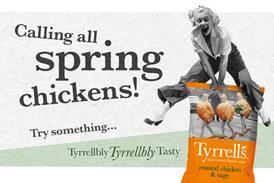
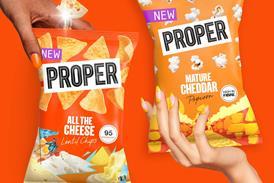

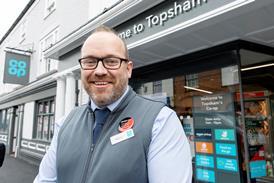
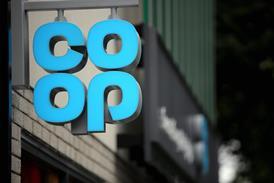
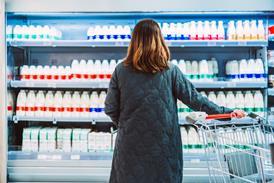

![WG-4003[58]](https://d2dyh47stel7w4.cloudfront.net/Pictures/274x183/4/5/1/353451_wg400358_6083.jpg)






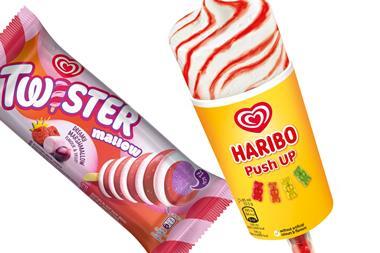

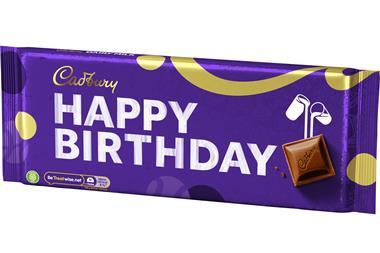
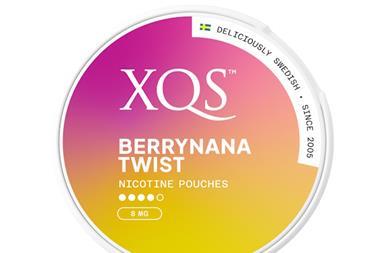
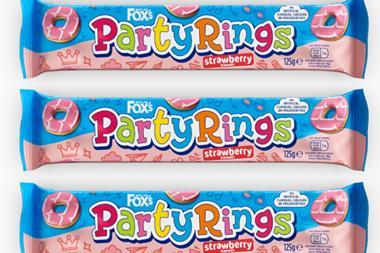
No comments yet